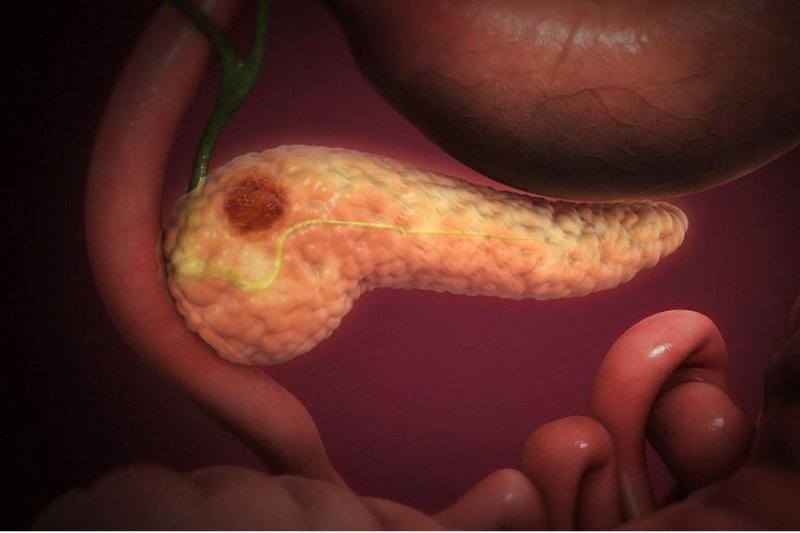Researchers have found recent-onset type 2 diabetes has been linked to pancreatic cancer in African Americans and Hispanics older than 50. Photo by
Manu5/Wikimedia Commons
June 18 (UPI) -- Recent-onset type 2 diabetes has been linked to pancreatic cancer in African Americans and Hispanics older than 50, according to a study.
These two minority populations, which have a high risk of diabetes, had been associated with a two-fold higher likelihood of developing the cancer if they also have had diabetes. But researchers say in a study published Monday in the Journal of the National Cancer Institute that it's actually a 2.3-times greater risk.
The pancreas, located in the abdomen, helps regulate blood sugar. Diabetes occurs when the pancreas fails to produce enough insulin or tissues become resistant to insulin, resulting in increased blood sugar.
"This striking relationship between recent-onset diabetes is unique to pancreatic cancer, and is not seen in breast, prostate and colorectal cancer in the cohort," Dr. Wendy Setiawan, an associate professor of preventive medicine at the Keck School of Medicine of the University of Southern California, said in a press release. "Our findings strongly support the hypothesis that recent-onset diabetes is a consequence of pancreatic cancer and that long-standing diabetes is a risk factor for this cancer."
Among those with recent-onset diabetes, the percentage of pancreatic cancer cases, at 16.4 percent, was higher than the 6.7 percent with colorectal cancer, 5.3 percent with breast cancer and 5.5 percent with prostate cancer.
With a five-year survival rate of only 8.5 percent, the key to treating pancreatic cancer is to detect it sooner or associate it with a risk factor. As it is, about 80 percent of patients are diagnosed with pancreatic cancer at a late stage.
Researchers studied questionnaires, Medicare data and California hospital discharge files to identify new diabetes diagnoses. In all, 15,833 of the participants -- or 32.3 percent -- developed diabetes between 1993 and 2013. Of those, 408 pancreatic cancer cases were identified during an average follow-up of 14 years. A total of 128 that developed pancreatic cancer had diabetes and 280 didn't have diabetes.
When pancreatic cancer patients undergo surgery to remove tumors, more than half of the patients with recent-onset diabetes have no diabetes postoperatively.
Among those with diabetes, 52.3 percent developed the disease 36 months before the pancreatic cancer diagnosis.
The researchers noted that patients with recent-onset diabetes should be studied for additional risk predictors and may be targeted for earlier diagnosis tests.















